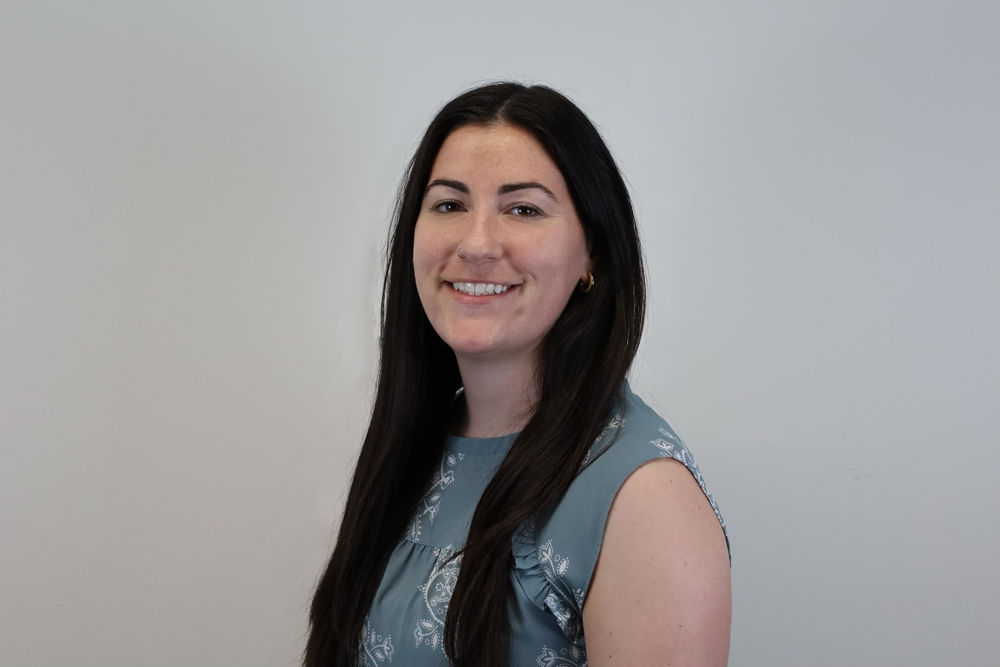
Graduate student Amanda Picozzi displays an impressive commitment to her research, despite facing years of Covid-related setbacks. In May, she finished collecting data for her master of science in kinesiology thesis, "Effects of Feedback Type on Trap Bar Deadlift Performance in Female ROTC Cadets," a project she began working on in 2020 and has been planning for even longer.
“I’ve known that I wanted to research this since my senior year,” she explains. Her research explores methods of improving the performance of female ROTC cadets on the trap bar deadlift, a requirement of the Army Combat Fitness Test (ACFT). Over the span of 6 weeks, Picozzi measured 13 undergraduates’ power, velocity, and score on the ACFT trap bar deadlift. She then provided feedback by either sharing data on the participant’s performance or showing them a video of themselves performing the deadlift, in order to determine the effectiveness of each feedback type. Her findings did not show one to be clearly superior to the other, but they do suggest that participants who received both types of feedback suffered from “feedback overload,” she says. She also found that participants who consistently focused on their velocity while training improved regardless of feedback type.
Although these tests lasted only 6 weeks, it took years of dedication for Picozzi to perform them. After graduating from Springfield College with a BS in kinesiology and exercise science in 2019, she planned to conduct her research under an expert at another institution; but when that expert left, she had to adapt. In need of a university with the resources to meet her research goals, she came to Temple to study under Daniel Rosney, assistant professor of instruction in the Department of Kinesiology. Three weeks later, Covid-19 forced universities across the country to close their doors and halt all in-person research.
Deprived of the ability to meet with participants and collect data on their performance, Picozzi’s research languished in logistical limbo for two years. She remembers feeling stuck and discouraged as she waited for the pandemic to abate. The situation forced her to consider alternative projects, but with the support of Rosney, she ultimately decided to wait for the opportunity to finish her research. “I was determined to get this done at Temple because a lot of people were excited about the idea, and I was committed to the research” she recalls.
“Amanda's tenacity, perseverance, and strength of will, to mention nothing of her passion and dedication, are self-evident and infectious,” says Rosney. “I encourage others to look to her example when faced with adversity and academic uncertainty.”
Picozzi credits her time as an ROTC cadet for passion and commitment to this topic. She remembers that “as a female in ROTC, there wasn't a lot of time to teach me things that I didn’t know. It was just assumed that I would know them already.” Picozzi’s research aims to correct this behavior on a systematic scale. “Since men are more likely to already know how to perform the trap bar deadlift, they have an advantage on the Army Combat Fitness Test, which can determine how much scholarship money ROTC cadets receive,” she says. She plans to continue this research while pursuing her PhD.
